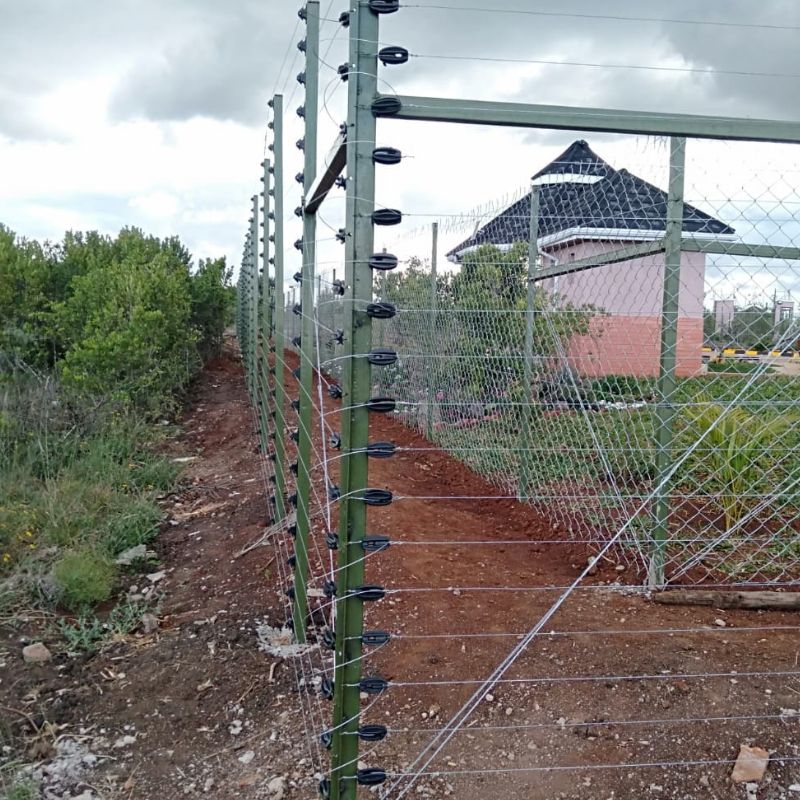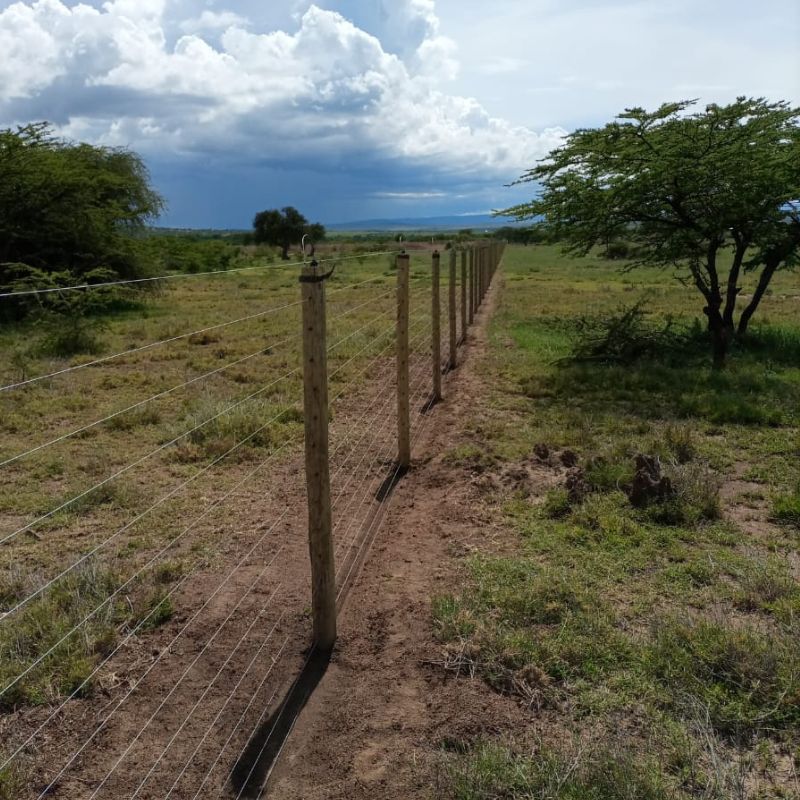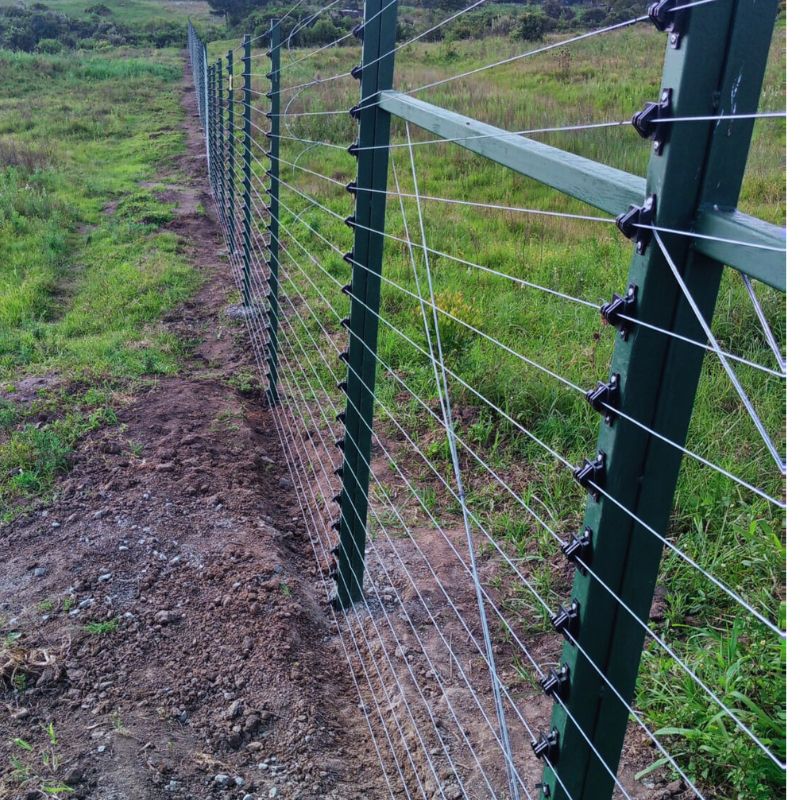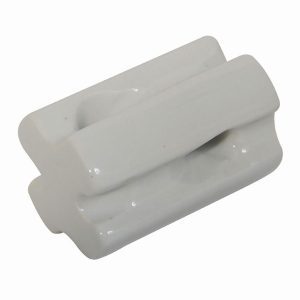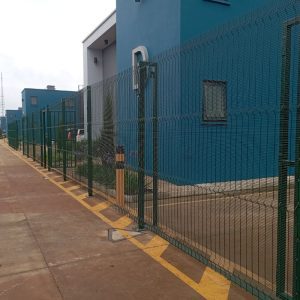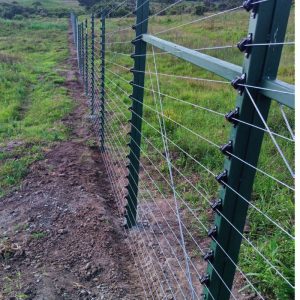Description
Types of Electric Fencing in Kenya
- Residential Electric Fences:
- Purpose: Primarily installed to secure homes and estates by preventing unauthorized access.
- Features: Often installed on top of walls or along property perimeters, integrated with alarm systems for added security.
- Applications: Villas, apartment complexes, gated communities, and individual homes.
- Commercial Electric Fences:
- Overview: Designed to secure business premises such as offices, warehouses, and factories.
- Features: Typically more robust, with higher power energizers and integrated with CCTV and alarm systems for real-time monitoring.
- Applications: Warehouses, industrial sites, and business complexes.
- Agricultural Electric Fences:
- Purpose: Used to contain livestock and protect crops from wildlife.
- Features: Made with durable, weather-resistant materials and designed to provide a safe but effective shock to animals.
- Applications: Farms, ranches, and wildlife sanctuaries, particularly for controlling cattle, sheep, or deterring wildlife like elephants.
- Portable Electric Fences:
- Overview: Lightweight and easily movable fences, designed for temporary use.
- Features: Often battery-operated and easy to set up and dismantle.
- Applications: Ideal for rotational grazing or temporary enclosures for events or seasonal farming.
Components of Electric Fencing Systems
- Fence Energizer:
- The heart of the electric fence system, energizers provide the electric pulse that travels through the fence wires. Energizers vary based on the voltage required for different applications, with more powerful models used for high-security or large animal containment.
- Fence Posts:
- Posts support the electric wires and maintain tension along the fence line. Available in various materials, such as steel, wooden, and PVC, each post type offers different benefits in durability and insulation.
- High-Tensile Wire:
- The wire is typically made from galvanized steel or aluminum, designed to carry the electric pulse effectively. High-tensile wire is recommended for security applications, while braided or polywire is often used for animal fencing.
- Insulators:
- Placed on each fence post, insulators prevent current loss by keeping the wires from grounding. They are essential for maximizing the fence’s effectiveness.
- Warning Signs:
- Electric fences must be clearly marked with warning signs to alert people of the electric shock risk.
Benefits of Electric Fences in Kenya
- Enhanced Security: Provides a strong deterrent to intruders for both commercial and residential properties.
- Cost-Effective: Generally lower installation and maintenance costs compared to other high-security systems.
- Versatile Applications: Suitable for securing property, protecting crops, and containing animals.
- Low Maintenance: Only requires occasional inspections and minor repairs, especially with quality materials.
- Environmentally Friendly: Electric fencing systems have minimal environmental impact and can operate on solar power, reducing energy costs.
Considerations for Installing Electric Fences
- Compliance with Local Regulations:
- Kenyan law requires that electric fences, especially in residential areas, follow safety and regulatory guidelines, such as displaying warning signs.
- Proper Grounding:
- Grounding is critical for electric fences, as it ensures the system functions efficiently and delivers an effective pulse.
- Reliable Power Source:
- Many electric fences in Kenya use solar-powered energizers, which are practical for remote locations and reduce electricity costs.
- Maintenance:
- Regularly clear vegetation around the fence to prevent grounding and inspect the system for broken wires, worn insulators, or voltage drops.
For tailored advice, installation, or maintenance of electric fences in Kenya, call 0722708034 or 0720 456534. Connect with us on WhatsApp at 0722708034 for expert solutions to secure your property.
or Fill out this form to book a service
[bookly-form hide=”categories,services,time_range”]

